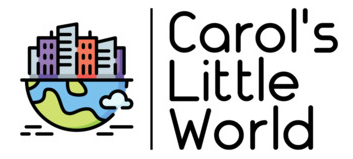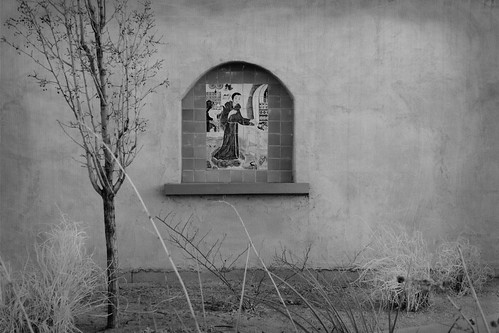The other day, I posted a link to this article, which tells you how to use a Leica as a teacher. If you recall, I might have said something along the lines of “in my almost 20 years behind a lens, it’s some of the most sound advice I’ve ever read.” Today, I thought I would discuss this a bit more.
For starters, the article suggests, “Shoot one type of black-and-white film.” That’s a good idea. Too many photographers-myself included, rely upon color to sort of “save” a shot. Color is (or can be) a gimmick. It can get in the way. It can distract you from the really important things-craft, vision, light, composition, etc. It’s not hard to see how this can happen. Imagine, if you will, lining up a shot. You’re there, camera attached to your forehead like some demented cyclops, when you suddenly stop thinking and shout, “Ohh, RED!” That’s what color does to you.
“Pick a single-focal-length 50mm, or 35mm, or 28mm. It doesn’t have to be a “good” lens—anything that appeals to you and that fits the camera will do.”
Oh,God, is that good advice. I can’t tell you how many people use zoom lenses who should not. And, I don’t know how to say it in so many ways. Here, let me try one more: PUT THE FREAKING ZOOM LENS DOWN. People still don’t get it. Let me try to explain, once more, for the thick, the dense, the slow learners in the back of the class…
A fixed focal length lens helps you train your eye. It helps you to “see” better. Yes, zoom lenses are wonderful things, and yes, nobody wants to be a “human zoom” when they grow up, but, if you don’t know how a lens works, if you don’t have a fully trained “eye” and can picture how an image will look at a given focal length, a zoom lens is your worst enemy. After shooting a year with a 20-200, for example, you’re going to be stuck with a lot of little pictures that don’t look like they were taken by the same photographer. You’re going to be all over the map, photographically, and you’re not doing yourself any favors by doing that. Move your feet. It’s not that hard and you’re not that lazy.
“Shoot at least two films a week. Four or six is better “
Again, here is even more sound advice. People sometimes ask me how I “learned” photography, how I “got good.” The single most important thing I did was to spend several years (yes, YEARS for the impatient) shooting between two and ten rolls of film a week. There’s just no substitute for shooting, shooting, and doing more shooting. In my case, I joined Barbara’s group, a group where we would look at slides, projected in a dark room (not a darkroom, a room that just happened to be dark.) The slides were big, it felt like a theater. And, every week, almost every student had to bring “between 3 and 5” ‘keepers’ or quality slides that they were proud of, that they didn’t mind showing off in that big, dark, projected room. Believe me when I say it now, that’s what whipped me into shape then. (The Online Photographer says in the article too, “Photographing is like jogging: benefit accrues to time spent doing it, not how fast you go or how much ground you cover.”)
Proof the rolls of film by contact and file them sequentially in a notebook. Get or make between one and six workprints per roll, however you choose to do it (even if you scan your picks and look at the pictures on a computer screen), and, every five or ten rolls or so, have one nice print made, or make it yourself. Craft well, but don’t crop and don’t fuss; just take what the camera gives you.
Here again, we have some expert advice. I can’t tell you how many modern photographers don’t know how to print. Many don’t know what a contact sheet is, or even what a “working” print or a “proof” print is. They’ve just never heard the terms. That’s sad, really it is.
Photography is a process. It’s a work in progress. You don’t just “snap!” and take a magical photo-you go out into the field, shoot, accumulate, formulate, refine, and craft. You think. You decide. It’s the decisions, sometimes, that make the photos, not the camera, the film, or the photographer.
We live in a point and shoot world. Everybody thinks you just go out and “snap” a good photo. The reality is, it doesn’t work that way. Photography is a craft. It’s like building a house. I mean, sure you could just grab some lumber, build four walls, a roof, maybe slap in a few windows and doors, but, generally speaking, it doesn’t work that way. You need to look at the landscape, the architecture, the surroundings, you need to fit the house into the geography and you need to craft the house. You spend time carefully deciding options, like the exact color of beige to paint everything, and you pick room layout and think about things like “traffic flow” which you maybe never considered before. It’s an art and a craft, you don’t just bang it out.
Look, if you do as he says in that article, you’ll develop that craft, and you’ll understand exactly what I’m talking about. You’ll learn to “take what the camera gives you” and learn more about the craft of photography, you’ll craft a vision, rather than just spew out more mindless crap like the rest of the beginners.
But I’ll say this: A year with a single Leica and a single lens, looking at light and ignoring color, will teach you as much about actually seeing photographs as three years in any photo school, and as much as ten or fifteen years (or more) of mucking about buying and selling and shopping for gear like the average hobbyist.
Oh, is that another sentiment I cannot agree with more. Photography is not about gear anymore than being an architect is all about the hammer and nail or being a great chef is all about the pot you have in your left hand. It’s the craft, the inspiration, the vision, the artistry that makes us, not the tools.
Look, I wish I could give you some kind of “silver bullet.” I wish I could tell you to “go throw money at the problem” and buy this sort of camera, or this sort of lens, and *poof* you’ll suddenly be as good as Joe McNally or you’ll be the next Joyce Tenneson. The fact of the matter is, those people got where they are through hard work, craft, vision, and creativity. They took the time to do these sorts of things. They can shoot using black and white film, they understand all about light and they know what all the knobs, dials, and buttons do on their cameras. They know all of this and more because they started, as the article says, simple, one camera, one lens, learn to see, and then they went on to become who they are.
There’s no snake oil at this fair, but you can improve your work if you’re willing to just put some time in and learn, even just appreciate, the craft of it all.
It’s going to be another record hot day in River City today, so I will now get down off my soap box and leave you to your day.
Until next time…


Author
Fabulous read! I could not agree with you more. I just got back into the craft after years of painting and sketching – my friends and family have been trying to get me to go digital and I love film/slide. Even the guy at the camera store could not get it – he said my camera was ancient and the lens was horrible, but I love my little "ancient" camera; and I love learning patience.
Author
I love the old time alchemy of shooting and developing film. I had a dark room for awhile, and I loved the laboratory feel of being in there, intensely involved with what was emerging on the paper. I shot mostly 28mm. I still have my 35mm, but it is not as much fun as when I could work the prints up myself. Magical comes to mind….to be busy with the paper, to be studying the clock, to be rubbing here and there to create an effect! It had suspense! It was like a Hitchcockian moment. Or like being in the movie, "Blow-Up" and having sex with Vanessa Redgrave!
Author
T. Clements, welcome. I like to think that there's no such thing as an "outdated" camera, only fools who have been tricked by camera manufacturers or fancy shops into thinking they need something newer/more expensive.
I'm sure that your background in painting and sketching is going to serve you very well as a photographer. They are really one and the same, different techniques, sometimes, but same eye, right same eye, for both.
Mythos, I always found the darkroom very relaxing. It's a peaceful solitude in there, just you and the chemistry, the trays gently rocking along, the magic slowly happening before your eyes. Digital is nice, but I'm happy to see the ways of analog film enjoying a resurgence. It makes for better photographers all around.
And here I thought everybody would be angry at me for making such a hard leaning post. (Works though.)